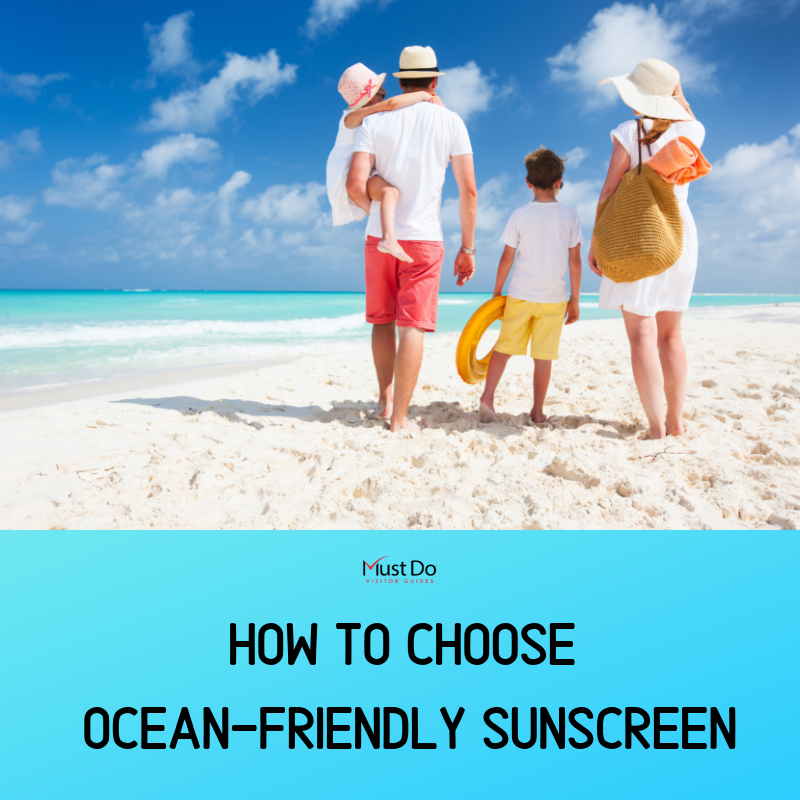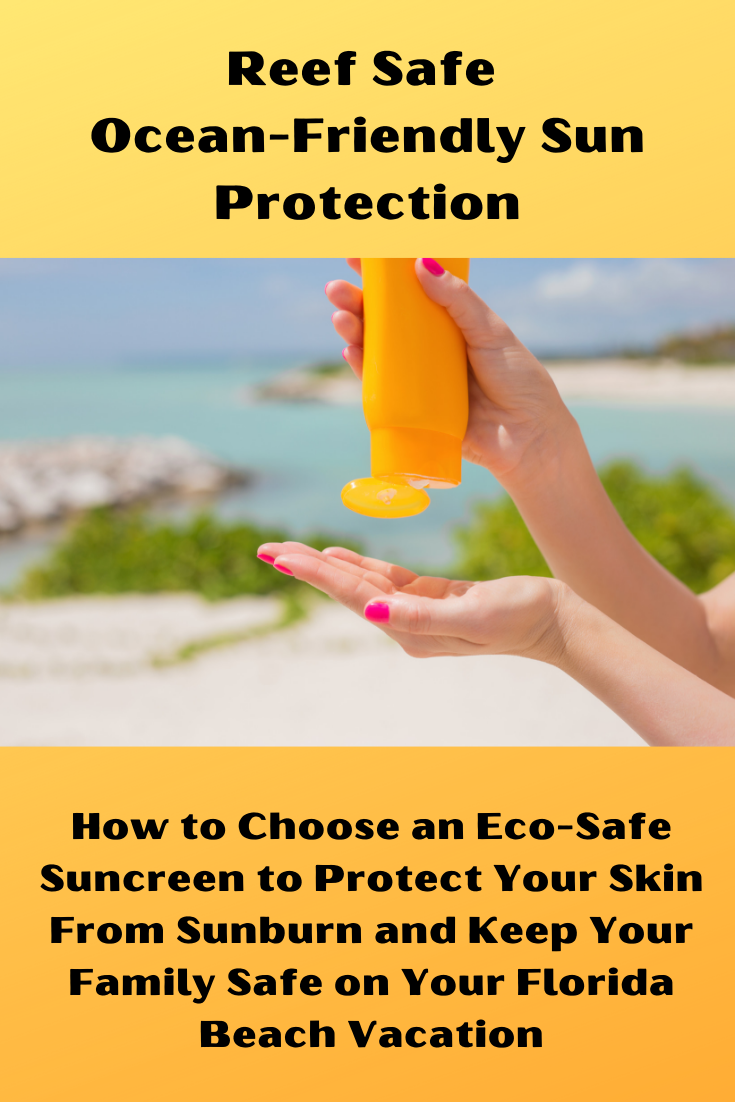By: Susan Finch
With so much emphasis on protecting our skin with plenty of sunscreen, it’s easy to forget to protect our world’s most precious assets while doing it. Your sunscreen could be damaging, or even skilling, coral reefs. It was estimated around 14,000 tons of sunscreen ended up in the world’s coral reefs in 2015 alone and causing irreparable damage.
Fortunately, there are reef safe, ocean-friendly sunscreens on the market that can help reduce the damage to our oceans and protect our skin without the toxic chemicals. Help protect Florida’s own coral reefs stretching near the Keys with these reef safe alternatives.

Go Zinc
Zinc-based sunscreens can help protect your skin without damaging the ocean. Reef safe brands like Kokua Sun Care Hawaiian are enriched with local spirulina, honey, kukui nut oil and other ingredients for a smooth, comfortable sunscreen. Carefully read all ingredients and instructions to avoid any allergic reactions, and make sure to reapply and adqequately prepare your skin for a day in Florida’s turquoise waters.
Oils
Some oils have built-in SPF quality and sun protection that could be ideal for a light day in the sun. Carrot Seed Oil is rich in beta carotene, vitamin E, and vitamin A and antioxidant properties. It’s estimated carrot seed oil delivers an SFP of up to 40 to help protect your skin from sun damage. Red raspberry seed oil may offer up to 50 SPF protection while moisturizing and protecting your skin on a sunny day. Other oils like avocado oil and sesame oil also have small amounts of SPF protection. Remember using oils is not like heavy sunscreen, and will need to be regularly reapplied. Make sure to test any oils you use for a skin reaction and test their durability in the sun.
Choose Sustainable Companies
Although many companies offer sunscreen and sun protection, not all do it with sustainability and eco-friendliness and now. Companies like Thinkbaby and Thinksport provide safe materials for consumers and was the first sunscreen to pass Whole Foods Premium Care requirements. Whatever reef safe sunscreen you choose, make sure it’s free of Avobenzone, Oxybenzone, or UV Chemical absorbers. It’s also wise to look at the packaging the sunscreen comes in to make sure it’s recycled.
Cover Up
Sunscreen is a powerful tool to prevent sun damage but needs reinforcement with a regular routine of covering up. If you love water sports or laying around at the beach, consider a lightweight, gauzy cover-up or rashguard, or duck under a beach umbrella to give your skin a break. A sun hat and sunglasses will protect your eyes, head, face, and neck and can also help keep you cool and feeling refreshed while enjoying everything the sunshine state has to offer.
Choosing ocean-friendly sun protection isn’t just good for our coral reefs, it’s good for our environment. Coral reefs provide a natural buffer to protect our coasts from waves, storms, and floods and help prevent erosion. They also protect our oceans’ diverse marine organisms. So before you purchase that next bottle of sunscreen, make sure it’s reef safe and rest easy during your time in the sun.
Planning to visit Southwest Florida?










